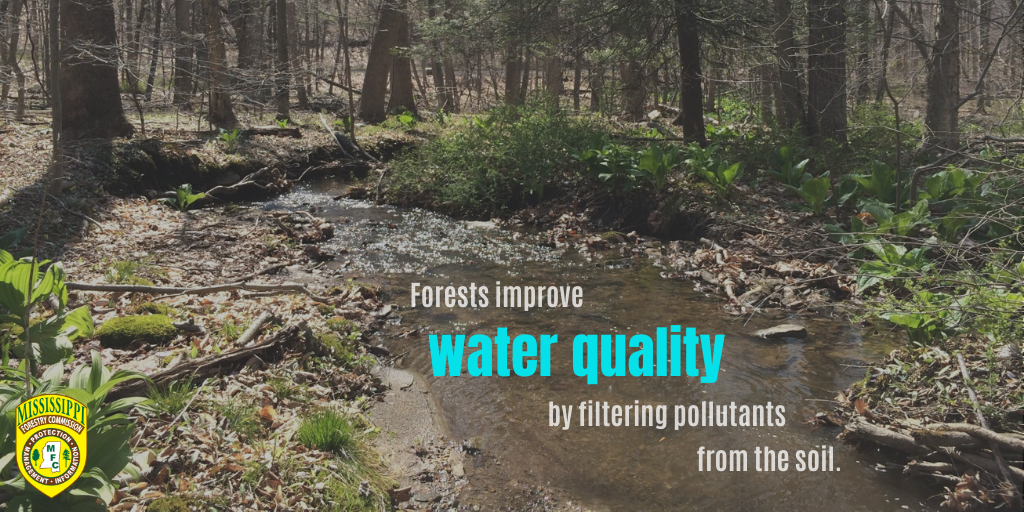MFC plays role in state’s water quality
When most people think of the Mississippi Forestry Commission (MFC), they probably think about wildfires and burn bans. While these two things are responsibilities of the MFC, they are not the only things the agency is involved in.

The Mississippi Forestry Commission is much more than just fighting wildfires and issuing burn bans. One of the most important – and, probably unknown – aspects of the agency is the role the MFC plays in Mississippi’s water quality.
Russell Bozeman, MFC state forester
The Federal Clean Water Act of 1987 requires proper steps be taken to prevent pollution to sources of drinking water and protect water quality. When conducting forestry operations, using Mississippi’s Best Management Practices (BMP) in Forestry – non-regulatory guidelines for silvicultural (growing and cultivation of trees) practices – satisfies the requirements of the Clean Water Act.
“Forested lands are an important natural resource for Mississippi,” Bozeman said. “What people may not realize is a forests ability to protect and cleanse the water we use every day.”
According to the Southern Forest Resource Assessment, produced by the USDA Forest Service, forested watersheds consistently yield lower sediment and nutrient contributions to surface water and improve biological conditions.
In Mississippi, implementing the forestry BMPs is voluntary. However, the MFC conducts a statewide monitoring survey and publishes a report every three years to evaluate the use of voluntary BMPs by the forestry community.
While the MFC monitors the use and effectiveness of forestry BMPs on approximately 850,000 acres annually, it is the responsibility of the landowner or timber owner to ensure that water pollution does not occur from forestry operations.
“Forests make positive contributions to the quality of life of Mississippians,” said Bozeman. “The MFC works with landowners, the forestry industry, loggers and other stakeholders to ensure that forestry practices are in compliance with the Water Quality Act and state law. While enhancing recreational and economic benefits.”
For more information on the MFC’s role in water quality in Mississippi, like and follow @MSForestryComm on Facebook, Twitter, Instagram and YouTube.
